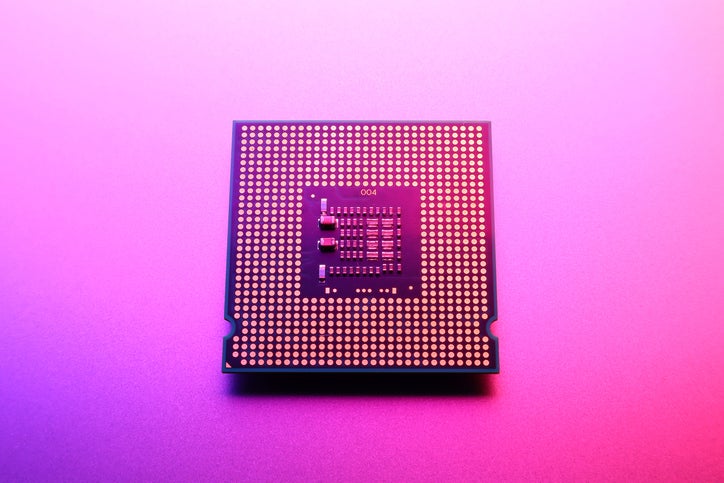
South Korea announced a 26trn won ($19bn) support package for the country’s semiconductor industry on Thursday (23 May).
President Yoon Suk Yeol said around 17trn won will be spent on a financial support programme for chips through the Korea Development Bank, which will go towards helping back large-scale investments by semiconductor companies in South Korea.
Another 1trn won will be used to aid companies that design chips but outsource the manufacturing, according to Reuters.
South Korea’s chip industry accounted for 18% of the country’s entire exports in April; however, the country’s market share of chip designing was just 1%.
Led by companies such as Nvidia and Taiwan Semiconductor Manufacturing Company (TSMC), South Korea’s fabless sector has fallen behind, according to Yoon’s government office.
TSMC reported a 34.3% year-on-year (YoY) increase in revenue during March 2024, largely credited to rising global interest in and adoption of AI.
TSMC stated that its March revenue totalled $6.1bn, making the fastest growth in profit for the company since 2022. Its revenue for the first quarter (Q1) of 2024 was up 16.5% YoY at $18.5bn.
This is in line with the upper half of TSMC’s expectations, as the company stated in January 2024 that it expected Q1 revenues to be $18bn–18.8bn.
GlobalData forecasts that the overall AI market will be worth $909bn by 2030, having grown at a compound annual growth rate (CAGR) of 35% between 2022 and 2030. In the GenAI space, revenues are expected to grow from $1.8bn in 2022 to $33bn in 2027 at a CAGR of 80%.
GenAI is expected to become ubiquitous across every industry and a catalyst for broader AI capabilities such as machine learning, computer vision and autonomous robots.







